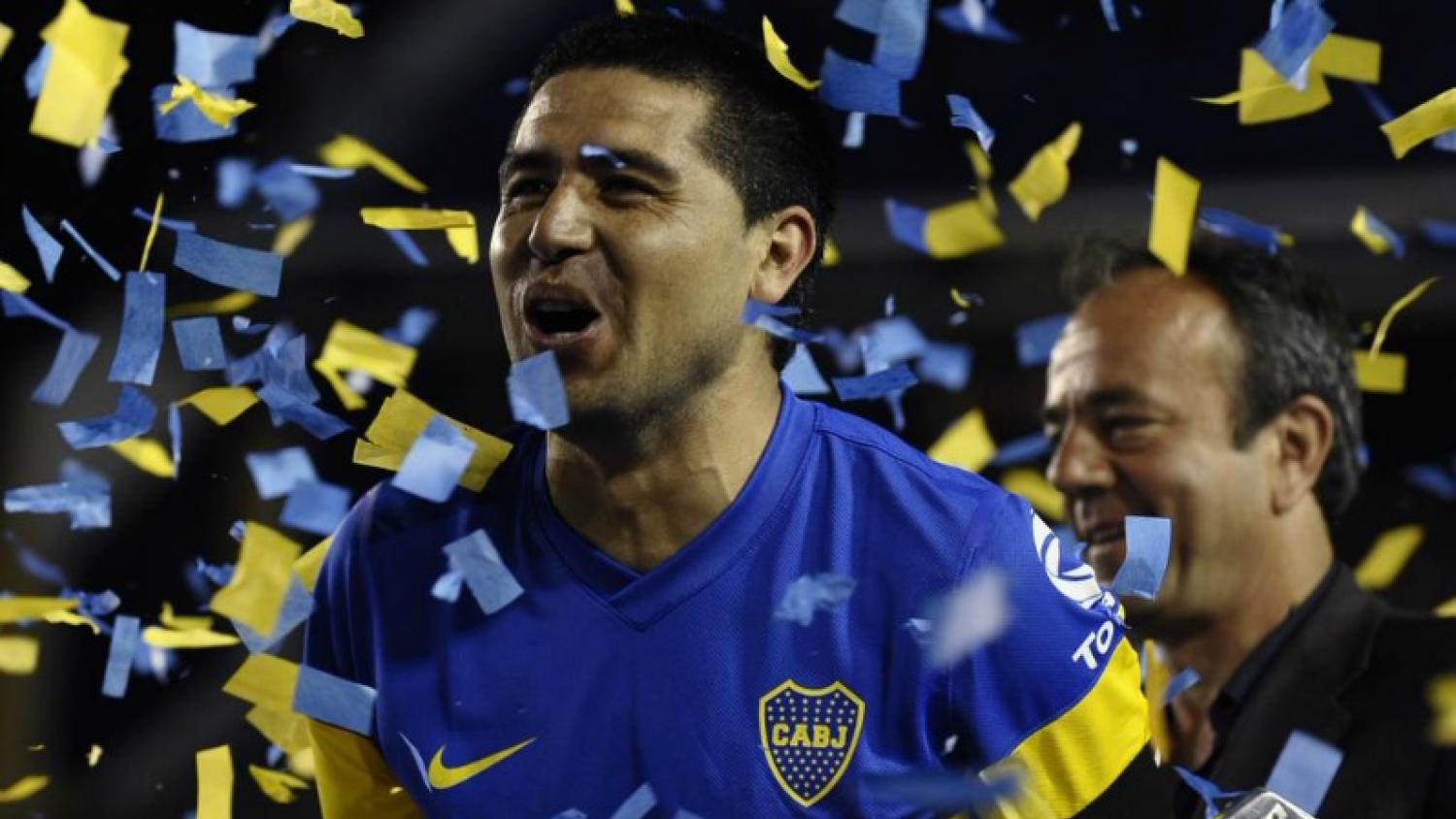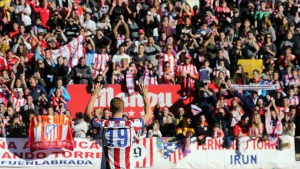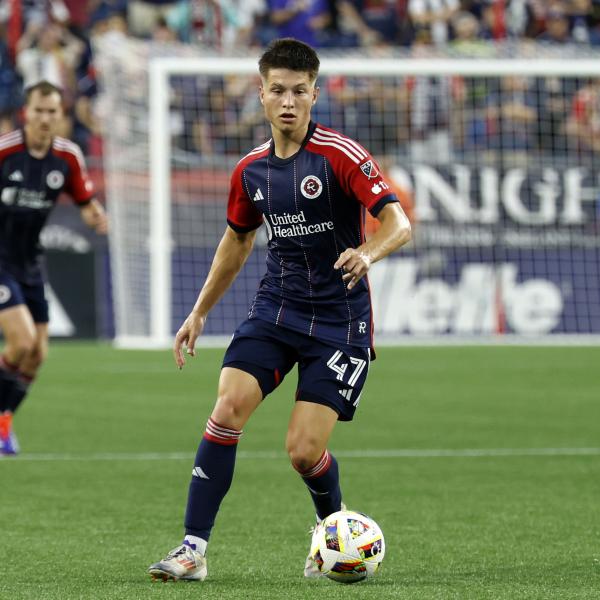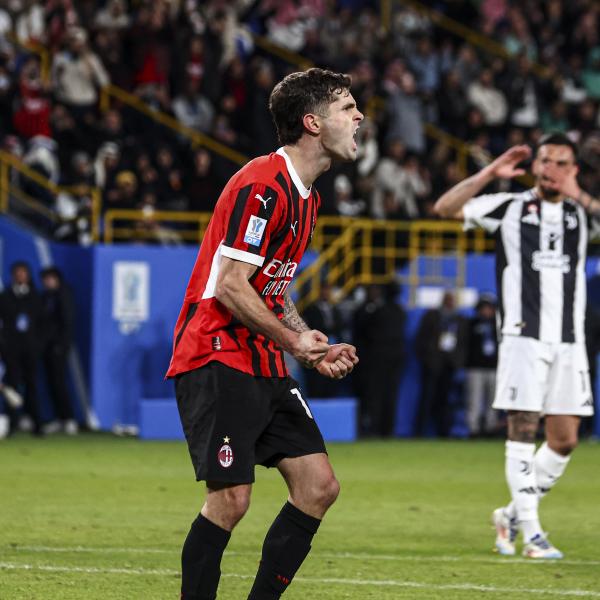Juan Roman Riquelme announced his retirement today. In order to fully appreciate what the end of this anachronistic legend’s career means, we must go back to the night that he caught the attention of the world.
It is the year 2000 and Boca Juniors has just beaten Real Madrid 2-1. No one expected the Argentinian club, continental giants as they may be, to be able to compete with the likes of Madrid. Luckily for Boca Juniors, their star player never cared for anyone’s expectations.
“For [Riquelme] football is the same always and everywhere,” wrote the Guardians’s Marcela Mora y Araujo. “He plays the way he plays and if you don’t like it, that’s not his problem.”
Juan Roman Riquelme was Boca’s “enganche” that day, their #10 and playmaker in a classic Argentinian sense, and the best player on the field. He was the embodiment of the soccer values that he grew up with. As the fulcrum of Boca’s attack, the skill and technique he commanded was matched only by his indifference towards what so much of modern football values: pace and work ethic.
That is not to say that Riquelme never tried, that he never gave it his all. He just played his own game, and that night in the year 2000, Real Madrid found out just how dangerous his own game could be.
Boca Juniors would lead Madrid 2-0 after just 6 minutes. The lead doubling courtesy of a spirited Riquelme arial pass that told viewers everything they needed to know about his game. In all, he touches the ball twice, moves maybe 3 yards himself, and sends the ball another 70 to his streaking forward. He made the ball do the work for him.
Players do not do what Riquelme did to Real Madrid that night and not get noticed. So it was no surprise when Barcelona came calling in 2002, but what should have been a dream move turned into a rude awakening.
Riquelme, for all of his flair and skill and finesse, was never a mobile player. He would never beat a man at pace, or press him aggressively in defense. The ability to do both of those things has become a staple that every world class club values in its players. Skill and technique are valued, but they are not enough alone. This doomed Riquelme’s time at Barcelona from the start.
At Boca Juniors, the entire team was crafted to maximize the impact Riquelme could have. He was given a midfield that could make up for his defensive short comings, and forwards that would gladly make runs for him. This was not only pragmatic, it was effective. Catering to Riquelme, Boca Juniors would win back to back Copa Libertadores in 2000 and 2001.
If Boca Juniors is a big fish, however, Barcelona is a whale. A star in his own right, Riquelme was joining a team of stars, and then-manager Louis van Gaal refused to give him the kind of preferential treatment he received in Argentina.
When Riquelme’s first son was born, it was van Gaal that presented Riquelme with a pint sized Barca jersey for his son. What should have been a kind gesture was really an act of condemnation. Upon presenting the jersey van Gaal told Riquelme, "he'll probably get to wear it more than you wear yours."

Riquelme's times at Barcelona could not have been what he hoped it to have been. (Photo: SenyPetICollons | Twitter)
Van Gaal refused to make Riquelme a regular fixture in his starting XI. When Riquelme was given the nod, van Gaal played him out of position. Inevitably, Riquelme never made an impact at Barcelona. After one season, he was loaned to Villarreal.
Riquelme is nothing if not a victim of circumstance. If South American soccer ruled the world, he may well have gone down in history in place of Xavi or Andres Iniesta. If he had been born 50 years earlier, he would have been able to dominate the slower style of play. We could have been talking about him in the same breath as Pele.
Most modern clubs do not have the patience for Riquelme. He is a creative genius, but clubs want to occupy his preferred, central attacking midfield position with more mobile players. Mesut Ozil, the aforementioned Iniesta, and David Silva offer the mobility and positional interchange that has become the hallmark of modern attacking soccer. They like to play at a fast pace, while Riquelme could hardly be bothered.
It is not that he could not understand a faster paced style of play. It is just that he always believed the enganche way was better, and thinking back to that night in 2000, who is to say he was wrong?
For those who might think him lazy or ungrateful or arrogant, understand that such thinking could not be further from the truth. He appreciates all he has been given by the game he loves.
“Football’s given me everything,” he said in an interview. “Just like little girls love dolls, the best toy I’ve ever had, or ever could have, is a football. The person who invented it is a true hero: nobody can top that.”
As Riquelme’s career passes into history, we can only appreciate what he has given us through what he is taking away: one of the last enganches. There will always be people who love soccer, but those who have the courage to play it in their own way are incredibly uncommon. As Riquelme retires, they become truly rare indeed.
If you liked this, you might also like…
Watch A 14-Year-Old Carlos Tevez Destroy The Opposition
Is Chicharito Destined To Be Greater Than Hugol?










